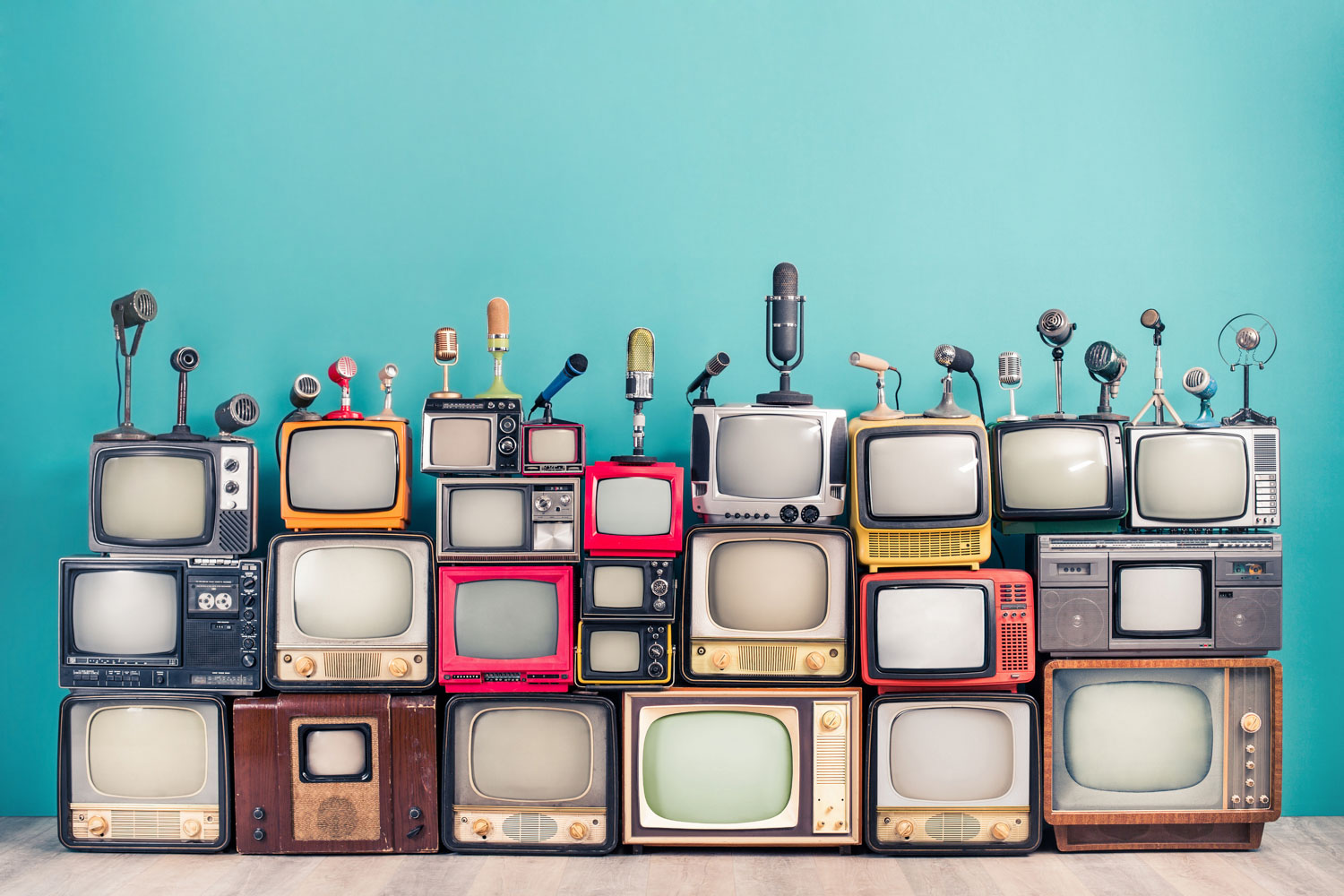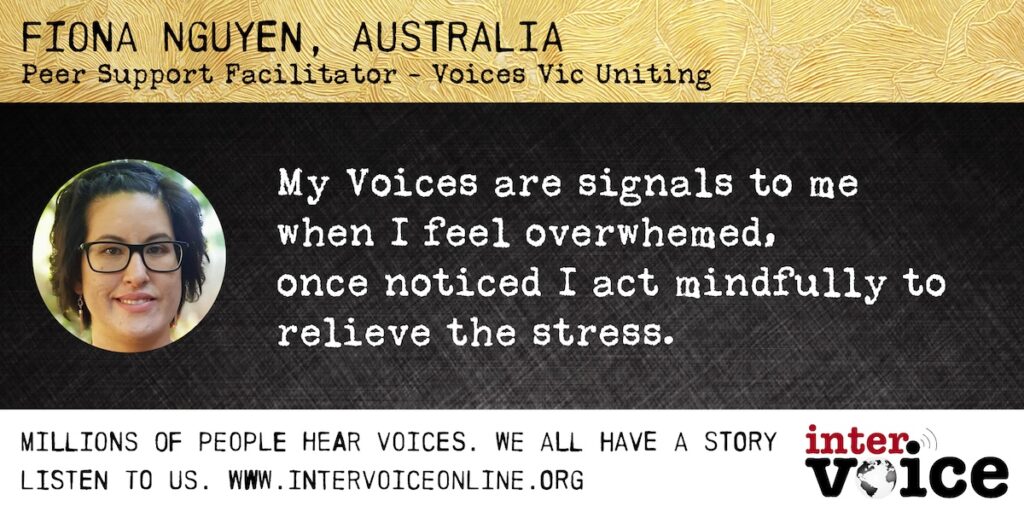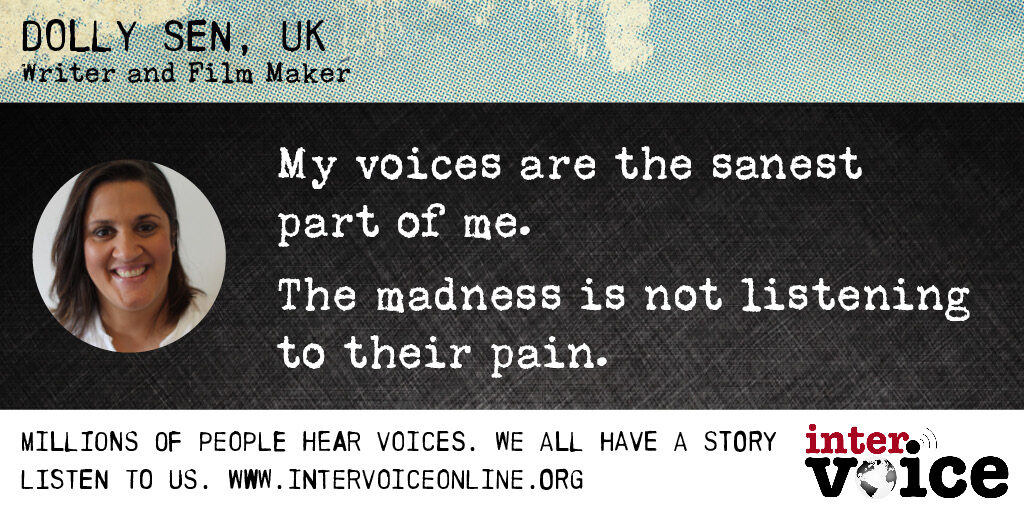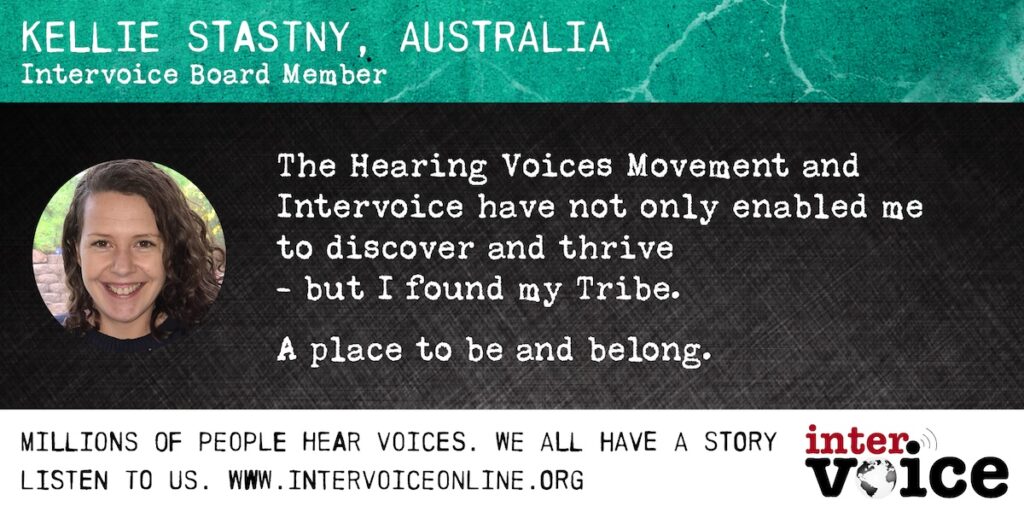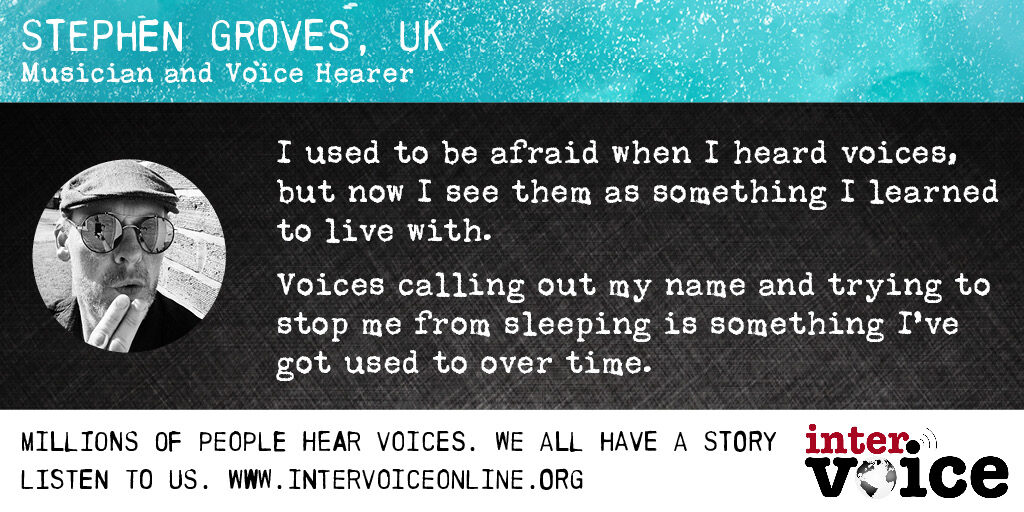By Kellie Stastny, first published in SBS Insight
Hearing voices that no one else can hear has been something that has nearly always been a part of my existence. Throughout my childhood the voices I heard and interacted with were often innocuous, even amicable or encouraging, especially in the adverse conditions. There were times however where the content or tone was frightening, eliciting fear and immense uncertainty.
Looking for the cause of the confused conversation I could hear is one of my earliest memories. Alarming and unsettling as it was there was an assumption that everyone heard them, and it was only through early interactions with family, friends and those at primary school that I was able to gauge that what I was experiencing was not normal due to the responses I got.
As a child I had to deal with a parent who had significant mental health struggles. As I approached adolescence I had regular contact with the mental health services used by that parent. Visit’s to local psychiatric hospitals or sitting in on appointments where psychiatrists seemed to sigh in relief when my parent responded “no” when asked if they were hearing voices, all reinforced the notion that not only was hearing voices abnormal it was part of an incurable illness called schizophrenia.
The subsequent years of my adolescence were interspersed with substantial trauma and loss and it was at this time the voices transformed from a predominantly benign experience to one that was increasingly disconcerting. My own mental health began to deteriorate but I did everything I could to ignore and suppress the voices.
Because my voices were such a closely held secret, my world and relationships were incongruent and lacking transparency. Self-medicating with drugs and alcohol and self-harm throughout my teenage years were a regular occurrence and was in hindsight, I can see, a way to exert control, an attempt at normality and a way to try and cope. When I moved out of home at 16 and dropped out of school there was a small reprieve with a semblance of settling somewhat. This was short lived, and my sense of self felt like it was disintegrating.
Interactions with mental health services at this time in my life resulted in me being diagnosed, medicated and then eventually told to leave. My behaviour became increasingly erratic and desperate resulting in multiple hospitalisations during my eighteenth year, any hopes and dreams eroded, I was convinced of my worthlessness. I was constantly barraged by the voices, taunted and intimidated yet still I was desperate to keep my secret and not be labelled with schizophrenia. Psychiatric services were seemingly full of judgement of my behaviour, the onus on me being bad and mad, no consideration for what had brought me into these services. I was heavily medicated and there was no therapy on offer upon discharge into the community.
Fortunately at this time I encountered someone who was able to hold hope for me, as I had none myself. Through this person I was exposed to an innovative program for young people.
A part of this education was being exposed to the Hearing Voices Approach and the Intervoice Community. This completely shifted all that I knew and would eventually give me the freedom to let go of my secret. I encountered wise, learned and generous individuals both with lived experience and professionals making statements I felt I knew innately to be true; that hearing voices was a meaningful and common experience. It was not an arbitrary characteristic of a psychiatric illness, there are many varied, rich personal and cultural explanations and significant work had been done by the founders of this movement, Professor Marius Romme and Dr Sandra Escher to help unpack this. These foundations have been built upon by many incredibly inspiring and insightful individuals adding to the research, tools and supports available for those hearing voices. It was in this worldwide community I found my people, my TRIBE. It was also here that the hard work in my discovery and recovery journey began in earnest.
I began to really listen and engage with the voices, their anger and anguish so evident but which had been unrealised for so long. The content held deep connections to my life, my childhood traumas and my distress – the correlations to difficult life events were palpable. Relationships were being built with the voices, with an earnest realisation on my behalf that the voices have held experiences that I have been unable to. Their rage, discomfort and fear are also all mine, their remonstration of me came to be understood as a way to keep me safe and hypervigilant in what they knew to be an unsafe world. My life truly changed with this approach I became passionate about challenging the myths, stigmas and preconceptions that perpetuate about those who hear voices.
I have gone on to speak and present at many conferences around Australia and the world and was asked to join the Intervoice Board in 2014. I am now completing a double degree at university in social work, I am married and raising two incredible humans.
Hearing voices is not an abstract experience. To me the voices I hear are part of my existence and they have been integral to me not only surviving but being able to thrive.
If you, or anyone you know, needs support you can contact Lifeline on 13 11 14 or Beyond Blue on 1300 22 4636


